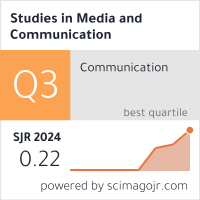Failure of I-statements for Mitigating Interpersonal Conflict in Arguments Between Young Adult Couples
Abstract
This study examines how young adult romantic couples use I-language (talk about one’s own feelings or thoughts) in arguments that emerge in the couple’s natural contexts. A discourse analytic approach is used to examine how I-language is used in conflict among young adult intimates. Focus is given to the role that evaluations and assessments play in managing talk about one’s feelings during arguments. One of the central findings is that arguments tend to be intiated with I-language feelings talk. However, rather than stymieing conflict, I-language use was met with deflection that utilized objective rejoinders. However, when I-language was built not simply as a way of showing how one felt, but rather to show an awareness of the other’s feelings or the overall dynamic in general (a kind of meta-subjective awareness), I-language did tend to promote alignment and/or affiliation. This study thus offers a helpful window into not only the lived everyday texture of young adult couples argumentative interactions, but also a micro-analytic look at how those interactions both falter and at times succeed in circumventing conflict.
Full Text:
PDFDOI: https://doi.org/10.11114/smc.v8i2.4982
Refbacks
- There are currently no refbacks.
Studies in Media and Communication ISSN 2325-8071 (Print) ISSN 2325-808X (Online)
Copyright © Redfame Publishing Inc.
To make sure that you can receive messages from us, please add the 'redfame.com' domain to your e-mail 'safe list'. If you do not receive e-mail in your 'inbox', check your 'bulk mail' or 'junk mail' folders.
If you have any questions, please contact: smc@redfame.com
------------------------------------------------------------------------------------------------------------------------------------------------------

